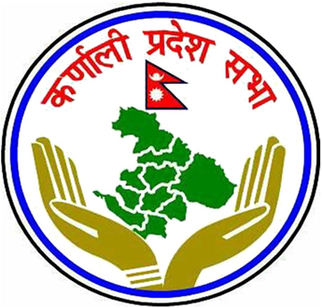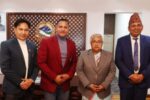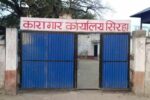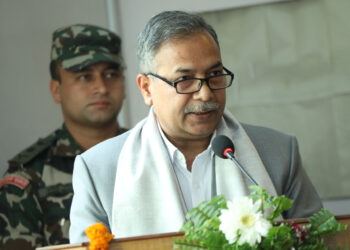BIRENDRANAGAR: A discussion on the draft of the Karnali Province Drinking Water, Sanitation, and Hygiene Bill took place in Birendranagar, Surkhet on Friday.
During the event, Minister for Water Resources and Energy Development Urmila Bishwakarma expressed her commitment to incorporating opinions, suggestions, and advice from the discussion into the draft.
She emphasized the need for the bill to be formulated in a manner that avoids conflicts with federal law and prevents duplication.
Hasta Bahadur Pun, the President of the Municipal Association of Karnali Province, underscored that laws tailored to the social, economic, and geographical uniqueness of the region would bring maximum benefits to the people of Karnali.
Nim Bahadur KC, President of Karnali Province Association of Rural Municipalities, stressed the necessity of creating a law that grants resource rights to the local level.
He highlighted that laws should align with local compatibility and the distinctiveness of Karnali, as the local government serves as the implementing agency for any law.
Joint Secretary at the Water Resources and Energy Commission Secretariat, Kalanidhi Paudyal, insisted that any national law should be simple, comprehensible, and enforceable, emphasizing the need for all-around cooperation in law implementation.
Deputy Director General of the Water and Sanitation Department, Madhav Bhandari, argued that Karnali would face unfair treatment if decisions are made solely at the federal level.
Secretary of the Ministry of Energy Development, Navin Chandra Adhikari, assured that concerns regarding policy, structure, representation, and linguistic issues raised in the draft would be addressed.
Ramesh Subedi, Senior Divisional Engineer of Karnali Province in the Ministry of Physical Infrastructure and Urban Development, provided a presentation on the drafting process, its legal foundation, stages, and the blueprint of the bill.
The discussion saw the participation of secretaries/representatives from relevant ministries, heads of local levels, journalists, water supply and sanitation experts, people with disabilities, heads of the indigenous federation, representatives from the industry and commerce, hoteliers, and other stakeholders.
RSS









Comment